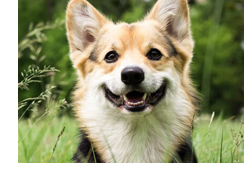
For our pets, grass seeds are more than just annoying – they can become painful foreign bodies, causing infection and requiring veterinary treatment.?
Some grass seeds have sharp tips and backwards-facing barbs, which are unfortunately perfect for getting embedded in your pet’s tissues and migrating in deeply.
Pets who run through tall grass are most at risk, particularly breeds with dense medium-length fur that traps seeds against the skin.
Grass seeds most frequently get stuck in animal’s eyes, paws, ears or airways, and therefore common symptoms can include:
? A puffy, red, weeping eye, which is too sore to open.
? A sore swollen area between your pet’s toes, which your pet may lick a lot.
? A sore ear canal, often with discharge.
? Unusual respiratory sounds, such as nostril snorting (which may be accompanied by nasal discharge), gagging or persistent coughing.
? A sore swollen area between your pet’s toes, which your pet may lick a lot.
? A sore ear canal, often with discharge.
? Unusual respiratory sounds, such as nostril snorting (which may be accompanied by nasal discharge), gagging or persistent coughing.
If your pet is showing any of these symptoms during grass seed season, it’s best to book an appointment with Dr Peter or Dr Dylan as soon as possible. If caught early enough, we may be able to remove the seed in a consultation using small surgical forceps.
If your pet is in a lot of pain, or the seed has migrated more deeply, your pet will need an anaesthetic for surgical treatment. On occasion, pets may require a referral to a specialist hospital for advanced imaging, such as MRI or CT, to search for a seed that has migrated deeply into their airways or other body tissues.
To help prevent grass seed foreign bodies, groom your pet weekly to minimise their coat thickness. For longer-haired pets, consider clipping their fur short to help you spot grass seeds early. ?
To help prevent grass seed foreign bodies, groom your pet weekly to minimise their coat thickness. For longer-haired pets, consider clipping their fur short to help you spot grass seeds early. ?
Please contact our Pet Doctors team if you have any other questions about grass seed injuries.

